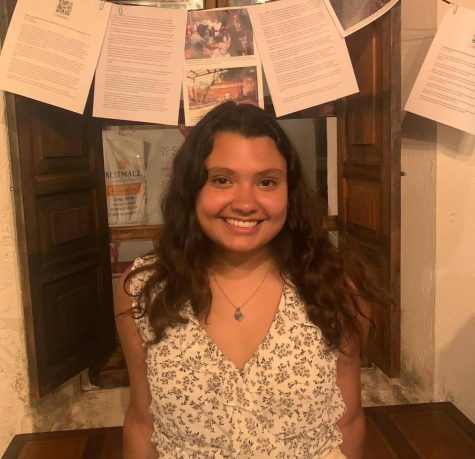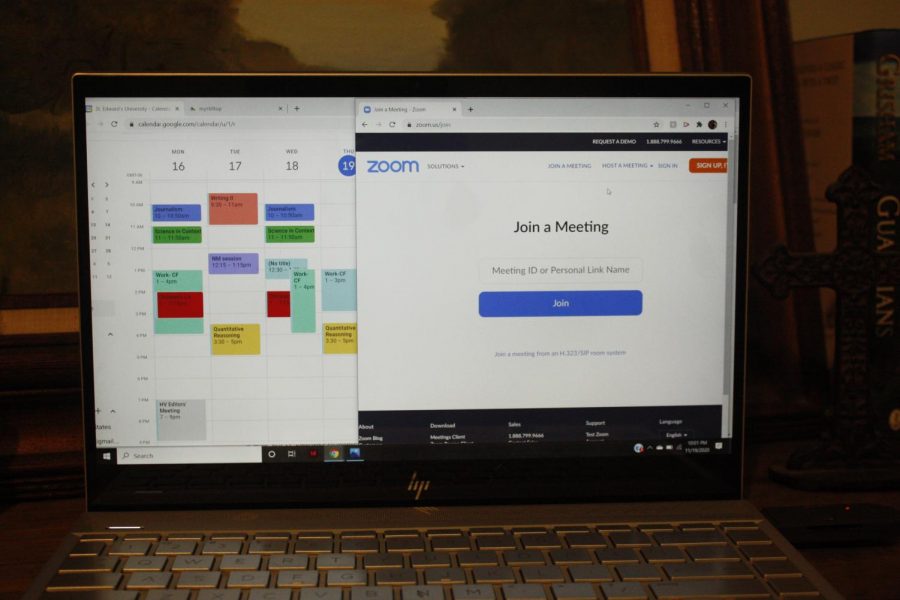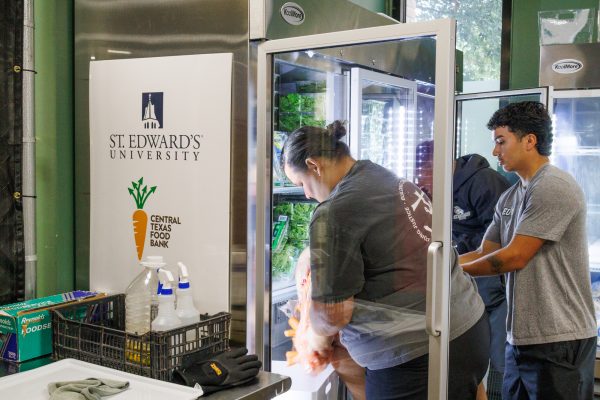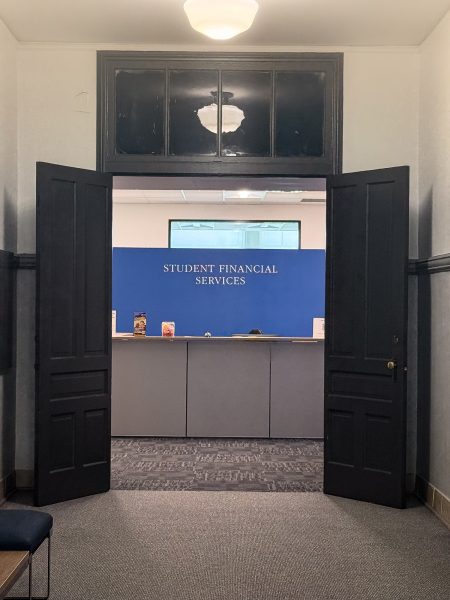Students endure academic burnout as virtual learning continues, struggle to balance course loads, work
Monday Nov. 16 marked the beginning of students’ thirteenth week attending classes virtually. Virtual learning has college students attached to their laptops and digital devices for hours at a time as they go to class, complete homework, study and repeat.
On Oct. 21, The Texas Tribune reported on the “pressing issues” that exist among college students learning remotely and administrators managing the transition to online classes. Four weeks remain until the fall semester is over, but St. Edward’s students are experiencing a state of burnout as heavy classwork and other stressors pile on top of maintaining their well-being.
Senior psychology major Rey Manriquez spoke of her experience trying to navigate through this unusual virtual semester.
“I’ve mostly been taking everything one week at a time. Being online is difficult, so it’s been hard to find a balance between classes, work and extracurriculars,” Manriquez said.
Throughout mid-September and October, Manriquez says she experienced two big burnout slumps where she felt put off from wanting to do work. For her it was hard to push through the slumps, and noticed she “felt drained a lot quicker than I would during an in-person semester,” Manriquez said.
For Manriquez, taking a solid two hours out of her day to log off from Zoom, her email and get away from her phone to cook dinner helps her wind down and remove distractions. “That time away from screens and school acts as a sort of meditation where I can recollect myself before tackling more assignments and Zoom meetings,” Manriquez said.
On a weekly basis, Manriquez is able to hold on to a sense of normalcy as a Peer Health Educator for Recreation and Wellness and a member of the school’s club rowing team. Although the circumstances for doing her job and being a part of rowing are much different now, she said that being a part of both gives her “a small time to forget we’re in the midst of a global pandemic.”
In her classes, Manriquez noticed the large increase in assignments she has this semester compared to courseloads she had in classes last school year that were conducted in person. “I’ve never had so many assignments due in one semester, and I definitely feel overloaded.” Although some of Manriquez’s classes require more work than before, she acknowledged how some professors “genuinely understand the vast amount of work students are getting” and are “being more lenient towards due dates and attendance.”
Manriquez expressed these few remaining weeks of the semester will remain to be a continuous process of learning what works best for her. “It’s not been a great learning environment for me. I’ve spoken to classmates and friends and know that we are all facing similar problems, but I’m not sure if the administration necessarily knows how hard this semester has been for students,” Manriquez explained.
For students in need of additional guidance and support completing this semester, visit the St. Edward’s webpage to view student resources available including academic tools and support services.

Nina Martinez is a senior at St. Edward’s University, earning her Bachelor’s in Writing and Rhetoric. Martinez has reported and edited for Hilltop...











